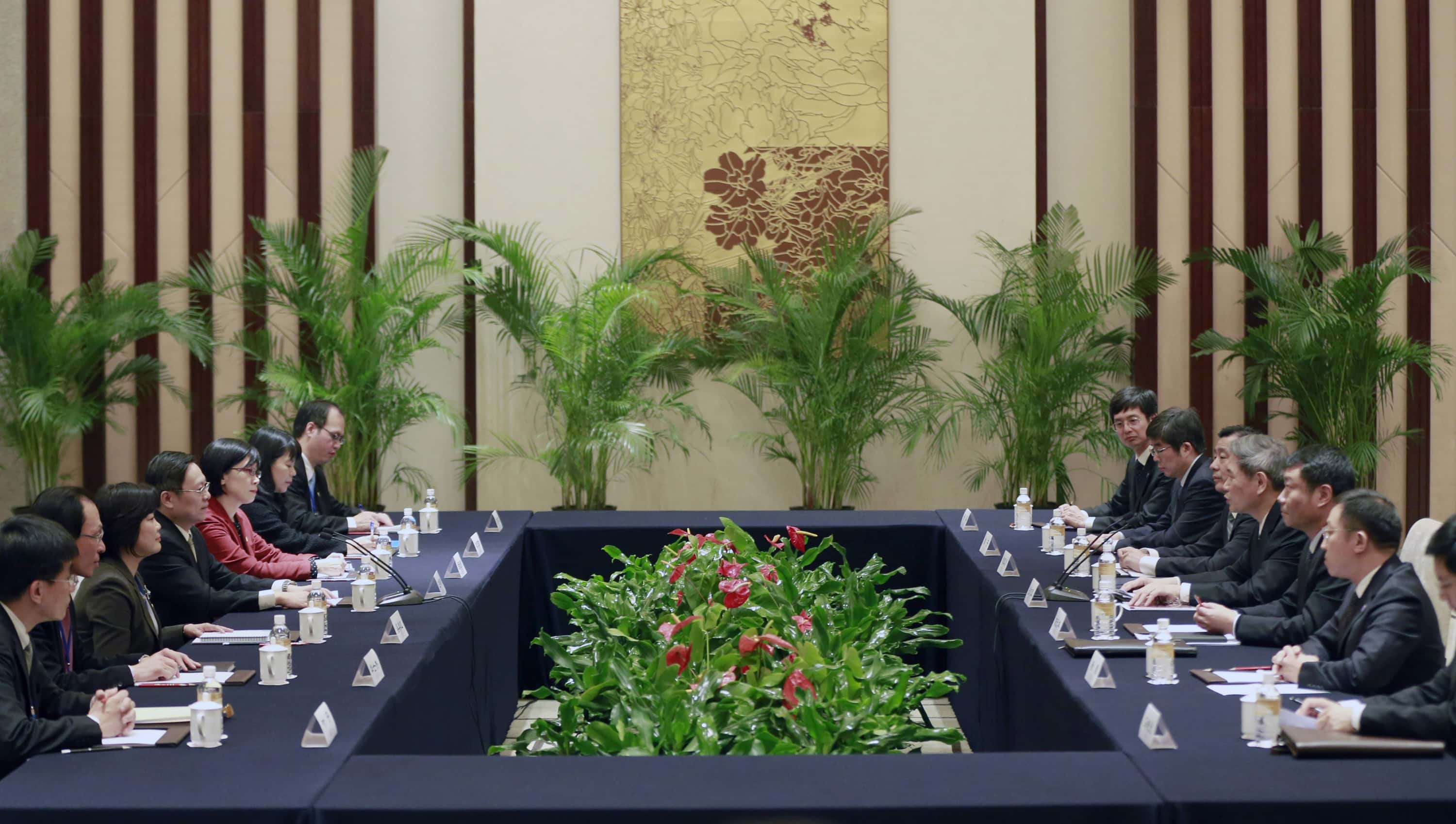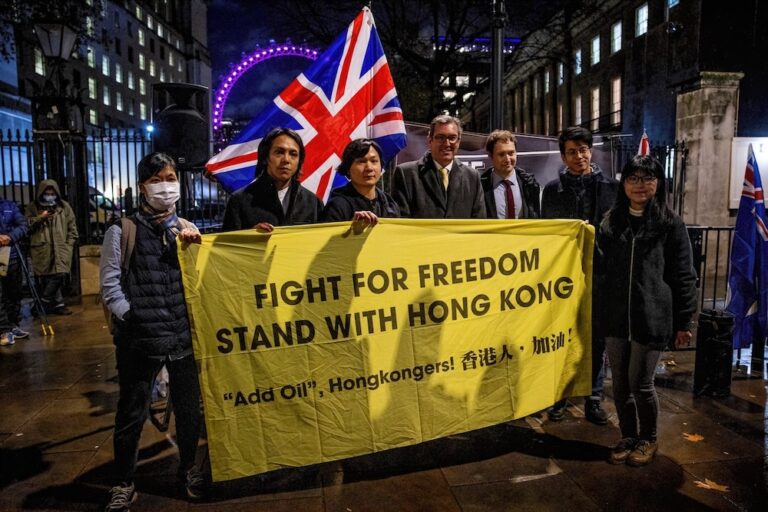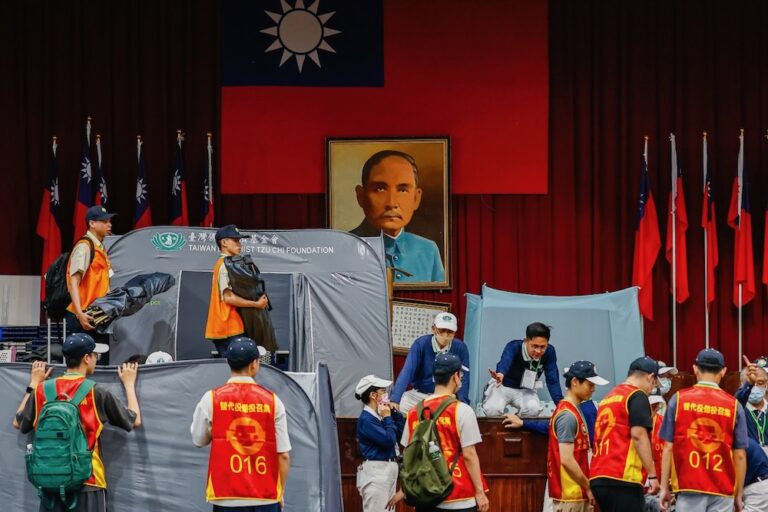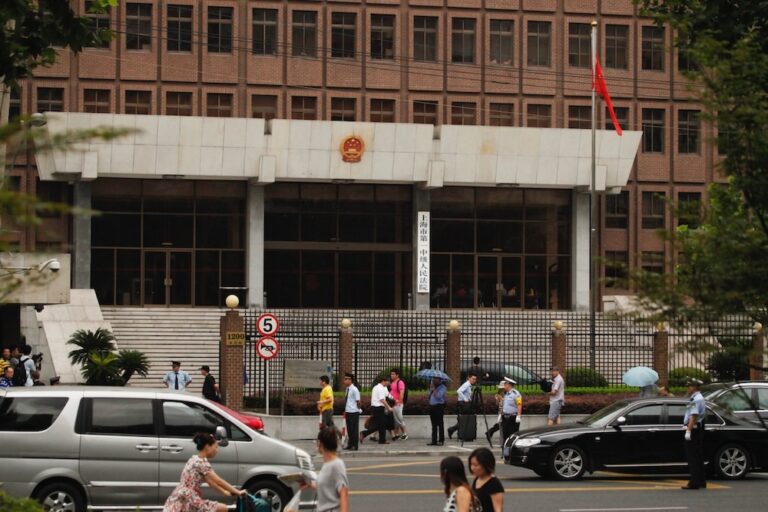China has denied visas to two Taiwanese journalists set to cover an official meeting between Taiwan and China. The refusal is particularly serious given that on the agenda is a possible agreement on news media cooperation that could ultimately permit news media from each side to permanently station reporters in the other territory.
The International Federation of Journalists (IFJ) joins its affiliate the Association of Taiwan Journalists (ATJ) in condemning China’s refusal to issue visas to two Taiwanese journalists set to travel to China this week.
The journalists from Taiwan’s Apple Daily News and Radio Free Asia were excluded from a delegation of journalists covering the visit by Taiwan’s Mainland Affairs Council Chairman Wang Yu-chi to China from February 11 to 14, 2014. Significantly, Wang Yu-chi is set to meet China’s Taiwan Affairs Office Director Zhang Zhi-zhong in Shanghai – the first official meeting between ministers of the two governments which formally do not recognize each other’s existence.
The ATJ is calling on Taiwan’s government to officially rebuke Beijing for its action and demands that China revoke its ban and allow all Taiwanese journalists to cover the visit without discrimination.
The ATJ said China’s decision to “trample on press freedoms” by refusing to issue the visas is particularly serious given that one of the items on the agenda is a possible agreement on news media cooperation that could ultimately permit news media from each side to permanently station reporters in the other territory.
The IFJ joins with the ATJ in calling on the governments of Taiwan and China to sign an “Agreement to Ensure News Freedom” and to immediately refrain from using the issuance of visas or permits as instruments of censorship. The ATJ has set out the following core principles on which such an accord should be based:
(1) Freedom of news gathering: The two governments should pledge to protect the rights of reporters of either side operating in each other’s territory to freely gather news;
(2) Personal freedom: The two governments should guarantee that reporters from either side will not be detained or monitored for carrying out news gathering tasks and that government agencies will not harass persons interviewed by reporters before or after the interviews;
(3) Freedom of reporting: The two governments should pledge to refrain from censoring news reports and will not use the powers to issue visas or allow the opening of bureaus as tools of censorship;
(4) Freedom of movement: Neither side should arbitrarily limit the establishment of news offices or applications for the assignment of permanent correspondents and any bilateral agreement must include respect of equal rights and parity for all media outlets without discrimination to enter each other`s territory for news gathering and reporting.
(5) Freedom from internet censorship: The agreement should prohibit both government from censoring or blocking any news website;
(6) Freedom of publication: Both governments should pledge to refrain from censorship of publication of books, magazines or audio-visual recordings across the Taiwan Strait; and,
(7) Freedom from government interference: Both governments should prohibit central and local governments and state enterprises or agencies from interfering with the management and operation and personnel of all news media outlets.
IFJ Asia Pacific director Jacqui Park said the Chinese government’s refusal to issue these visas was indicative of an ongoing trend.
“The Chinese government is clearly using their ability to retract or refuse visas to journalists as an instrument of censorship,” Park said.
“Recently we have witnessed high profile cases in which foreign journalists such as the New York Times’ Austin Ramzy and the South China Morning Post’s Paul Mooney were forced to leave the country after having visa renewals declined. This is the first case we have come across where Taiwanese journalists have been targeted.”
Read the IFJ’s recently launched 2013 Press Freedom in China Report.



